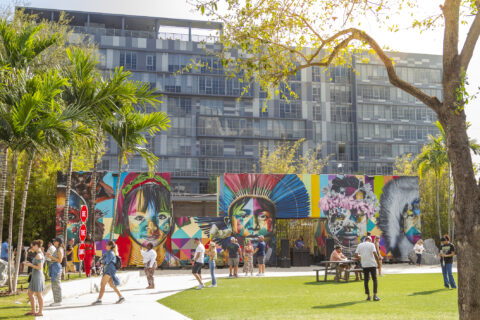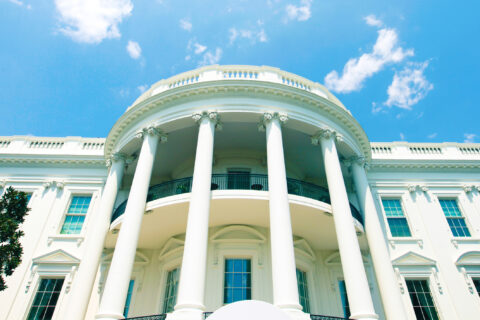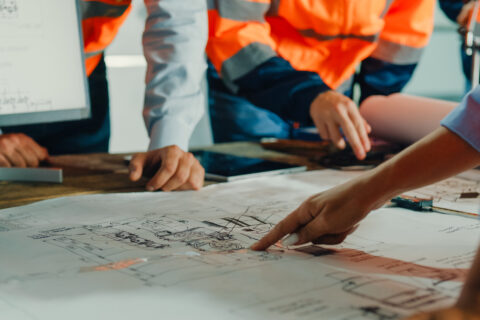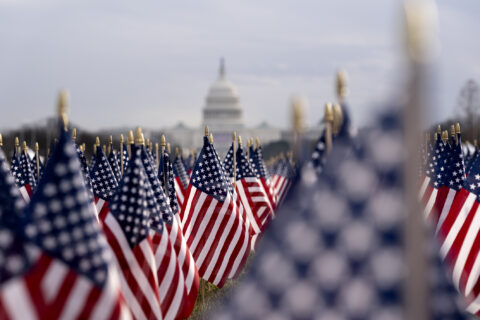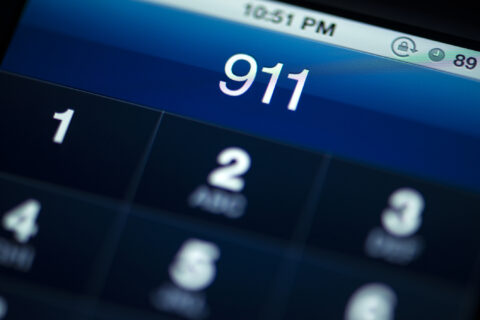Local elected officials are uniquely positioned to help their communities manage the economic and health impact of COVID-19 and to address severe chronic inequities exposed by the pandemic. This blog is the first in a series dedicated to highlighting mayors’ priorities to help guide and focus local responses to support residents’ health and safety in the near term, and to position the city to improve equity and resiliency in the longer term.
Earlier this year, we learned of mayors making dramatic changes to the way they communicate critical messages to their residents as a result of the COVID-19 pandemic, including postponing or altogether canceling their state of the city speeches, one of the most effective ways for local leaders to address the health, stability and future of their communities. Fast forward eight months later, more mayors are sharing important messages with their residents and businesses on social media platforms like Twitter in an effort to be more transparent about current events and plans of action.
With the 2020 election top of mind for many Americans, NLC analyzed the top 100 cities by population to understand how mayors are ensuring free and fair elections, using data collected from Twitter as of October 16th. Approximately 67 percent of mayors from the top 100 cities tweeted about free and fair elections during 2020, with about a quarter of all tweets about raising voter awareness.
Voter registration closed last week for many communities, and mayors made every effort to communicate those deadlines to residents through Twitter. In celebration of the National Voter Registration Week of Action, Boise, Idaho Mayor Lauren McLean tweeted, “When we all vote, our democracy begins to reflect our communities and values.” Mayor Buddy Dyer of Orlando, Florida hosted a voter registration drive in partnership with the Orlando Magic at the Amway Center, and Mayor Sylvester Turner of Houston, Texas promoted a voter registration drive by the Houston Rockets. Both Denver, Colorado and Durham, North Carolina hosted voter registration events with healthy food baskets for residents. Tampa, Florida partnered with Emgage Action to raise awareness for voter registration in the Muslim community. Philadelphia, Pennsylvania went so far as to open seven satellite election offices to help people access voting materials.
Approximately 67 percent of mayors from the top 100 cities tweeted about free and fair elections during 2020, with about a quarter of all tweets about raising voter awareness.
Mayors have also championed mail-in voting, wherein Long Beach, California, 16 ballot drop boxes have been installed and in Lexington, Kentucky and Jersey City, New Jersey, six ballot drop boxes each have been installed. “Your Long Beach ballot drop boxes are safe,” tweeted Long Beach Mayor Robert Garcia to reassure absentee voters. “There are zero reports of fake ballot boxes or tampering of boxes in Long Beach.” In Milwaukee, Wisconsin, public libraries have been designated as safe ballot drop-off sites where voters can ensure their ballot has been received. In Madison, Wisconsin, residents were able to hand in their absentee ballots at a “Democracy in the Park” event. And St. Louis, Missouri created four off-site absentee voting locations.
In addition, several cities are providing free transit on election day. For example, Wichita, Kansas and Los Angeles, California are providing free bus rides. “Our democracy works best when we all participate,” Los Angeles Mayor Eric Garcetti tweeted. In Fort Worth, Texas, voters can take free rides to the polls throughout the early voting period and on election day using their voter registration card or current Texas ID.
With the spread of COVID-19 showing no signs of slowing, ensuring the safety of poll workers and in-person voters is critical. In Nashville, Tennessee, Mayor John Cooper is providing poll workers with personal protective equipment, and in Boston, Massachusetts, Mayor Marty Walsh has additionally moved some polling places out of senior buildings for residents’ safety, tweeting, “We are committed to making sure Bostonians can vote safely.” Several cities are providing city employees with paid time off for working at the polling stations. For example, in Columbus, Ohio, city employees can volunteer to work at polling stations on election day without using vacation time. In Austin, Texas, the new “Let Texas Vote Day” initiative allows city employees to request paid leave to vote, serve as poll workers, and participate in election-related activities on election day. “We’re better #WhenWeAllVote,” tweeted Mayor Steve Adler.
The right to vote and have our voices heard is fundamental to our democracy, and as voter suppression continues to stifle this right for many Americas, many are worried about the integrity of the election. In response, Mayor Mike Coffman of Aurora, Colorado held a press conference discussing general questions raised about ballot security in the state. The mayor is also recruiting more paid Republican judges to fulfill the requirement for balanced, bipartisan vote-counting teams. And Mayor Kate Gallego of Phoenix, Arizona joined more than 170 mayors, including Mayor Steve Schewel of Durham, North Carolina, in supporting legislative action to underscore the importance of the U.S. Postal Service, tweeting, “The importance of a fair and safe election cannot be understated.”
Despite these challenging times, mayors are sharing critical voting information with their communities and implementing policies that will not only help curb the spread of COVID-19 but also continue to address vulnerable populations. Mayors are utilizing Twitter creatively to connect with the public, engage on pressing questions and comments, and execute campaigns to mobilize voters in their communities. Many cities are facing challenges on how to continue voter engagement while also navigating the realities of the pandemic.
Commit to Cities Vote
NLC’s Cities Vote initiative seeks to strengthen and support the roles of city leaders as advocates to other levels of government, educators for their residents, and implementors of voting infrastructure that enable accessible, safe, and secure elections for all eligible voters.


